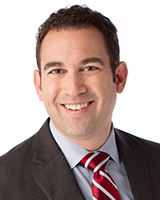Federal government approves first ten permits to fly drones farther, and over people


SAN FRANCISCO (KGO) -- Wednesday, the Federal government announced the first ten places where they'll allow drones to fly without a pilot anywhere in sight -- on a strictly experimental basis.
In a Washington, D.C. press conference, U.S. Transportation Secretary Elaine Chao called drones, "the most significant new development in aviation since the beginning of the jet age."
RELATED: What you need to know about drones
At the press conference, Chao announced the approval of the first ten applications to fly drones without current restrictions, which prohibit commercial drones from flying over people, at night, or outside the pilot's line of sight.
Among the approvals were some Bay Area companies: Google's parent Alphabet will make deliveries in Virginia, and Uber will work toward its air taxi in San Diego. Apple plans to use drones for mapping in North Carolina. But Amazon, even with its hugely popular "Prime Air" drone delivery videos, did not make the list.
State and local governments had to apply along with companies. Kansas had a large delegation at the press conference and touted its readiness with a statewide drone traffic management system. The city of Reno is playing host to startup Flirtey, which plans to deliver defibrillators by drone in medical emergencies.
"This initiative will truly save lives," said Reno's mayor on a live stream during the press event.
The pilot program will pave the way for something a lot of people and companies have been waiting for: the ability to fly a drone without a pilot on the ground looking up at it.
"It will open up a whole slew of opportunities for industry," said David Bhurman, who manages regulatory affairs for San Francisco-based Airware.
Airware makes software to pilot drones for otherwise dangerous tasks like inspecting rooftops and utility poles. They've needed special exemptions for certain jobs, like flying at night.
RELATED: Drones may be used to fly blood to hospitals in Palo Alto
"Things like water intrusion, which can only be detected at night, and via a thermal camera," Buhrman said.
Buhrman spent six years working for the FAA, and said he got used to the slow pace of government work.
"This is probably the quickest the FAA has moved on any type of regulation," he said. "We're not used to seeing this."
But in one sense, the government had no choice but to move quickly. AirMap co-founder Greg McNeal said there's mounting pressure as other countries soar past the United States with laws that allow compelling real-world uses for drones.
"I think if they'd sat there and done nothing, you'd have an industry that can literally save lives that would be mostly on the sidelines," McNeal said.
AirMaps makes software that allows governments to communicate with drone operators where they can and can't fly -- and streamlines the process of applying for special flight permits.
McNeal said public opinion is clear: people are worried about safety and privacy. In light of those concerns, he said the Federal government is doing the right thing by making applicants demonstrate that they're working directly with the communities where their drones will fly.
"Drones might be operating in downtown areas, and people really want to have a voice in how that takes place," he said.
Click here for more stories, photos, and video on drones.








